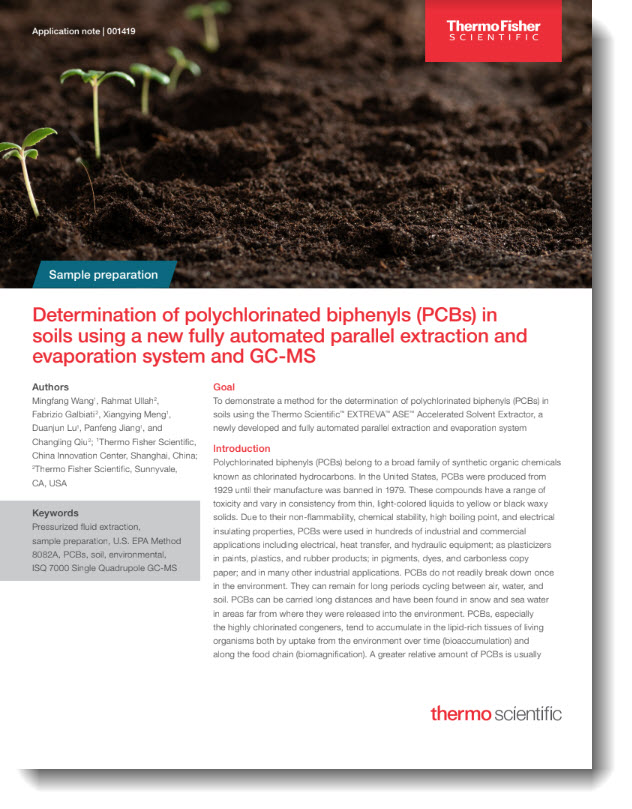
Harnessing Accelerated Solvent Extraction and GC-MS for Analysis of PCBs in Soil

Polychlorinated biphenyls (PCBs) are synthetic organic chlorinated hydrocarbons that have been used in hundreds of industrial and commercial applications including electrical, polymer, rubber, and many others. Although now banned in the US due to their widespread toxicity, PCBs fail to break down in the environment and instead cycle between air, water, and soil, entering the food chain and posing severe threats to animals and humans. Current EPA-approved techniques for measuring PCBs in soil use Soxhlet extraction techniques which are labor intensive and suffer from high solvent consumption, among other complications.
This application note demonstrates a method for the determination of PCBs in soil using the new Thermo Scientific EXTREVA ASE Accelerated Solvent Extractor upstream of analysis by GC-MS. This fully automated parallel extractor and evaporator system was coupled with the Thermo Scientific TRACE 1310 Gas Chromatograph and Thermo Scientific ISQ Single Quadrupole Mass Spectrometer for the determination of 17 PCBs in a range of soil matrices. Advantages of this system include:
- Use of up to six different extraction solvents and up to four extraction cells in parallel
- Extraction and evaporation in one seamless operation with outstanding sample recovery and precision
- Carryover rates of less than 1% with minimal risk of sample cross-contamination
- Excellent extraction efficiency, throughput, and performance to resolve challenging PCB applications
Read the application note to learn more!

LEARN MORE

